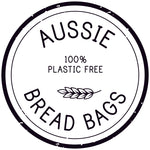It was one of the biggest changes of our generation in Australia… some people celebrated; some people thought the world as they knew it was ending. It was the end of single use plastic grocery bags. Grocery shops were no longer giving them away with reckless abandon, and there was anxiety as a result. Ok, maybe that’s a little bit dramatic, but it was a big change for a lot of people.
Reusable grocery bags have been heralded as the saviour of the environment and the eco-friendly alternative. But there are very convincing arguments for and against their use. Some points of view go as far to say that the so called ‘environmentally sustainable’ options are actually worse for the environment than single use plastics.

Source: https://eatright.org
We’ve done the groundwork and resolved the confusion in the following.
The Pros.
Of course, the use of reusable bags reduces the number of single use plastic bags that used, in turn, reducing the pollution caused by them. This can only be good for the environment and wildlife.
Reusable bags are tougher and more resilient than single use plastics, meaning they last longer. This also means there is a lower number needing to be disposed of, which reduces the amount that end up in landfill or in our oceans, also reducing the harm to marine life or animals caused by them. All good things as well.
Recycled and biodegradable bags can also mean the lifespan of plastics are extended, which means the demand for new ones is reduced. This, as a consequence, reduces the number of plastic bags needing to be manufactured. Even better news for the environment.
But it’s not all good news…

Source: pinterest.com
The Cons.
While some bags have a lower environmental impact than others, all bags leave some impact through their manufacturer and also in their disposal once their useful lifespan has been reached.
Being made out of stronger, tougher materials can also mean that they need more resources to manufacture, leaving a larger footprint on the environment initially. It does sound counter intuitive.
This leads to an interesting point…
Environment Friendliness Grows with the Number of Uses.
Here’s a very interesting point for you in regards to that possible counter intuitively mentioned earlier. If you were to measure the environmental friendliness of a single use plastic shopping bag against a multiple use bag, both only being used once, the single use plastic wins every time. It’s actually more environmentally friendly for single use! That’s a sobering thought.
Maximum environmental friendliness of multiple use bags is reached when they are used over and over again. The key to making your multi use bags the most eco-friendly it can be is to use them as many times as is possible. The more uses, the smaller the footprint it leaves behind.
In the UK, the minimum number of times a multi use bag should be reused is recommended to be:
- 173 times for a cotton bag
- 14 times for a polypropylene (PP) folding bag
- 4 times for a paper bag
- 2 times for a recycled plastic bag

Source: https://aussiebreadbags.com.au
Disposing of grocery bags in the proper way whether they are multi or single use bags; and recycling where possible at the end of their lives will also make sure that yours (and their) environmental footprint is minimised.
So, the outcome is YES, reusable shopping bags do help the environment, but only if they are used as they are intended. Many times over!
You can start your reusable bag journey today by purchasing an Aussie Bread Bags and saying good bye to single use plastic bread bags for good.
